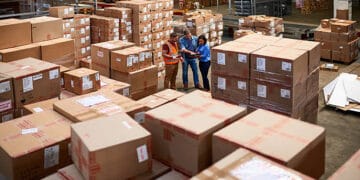Effective January 1, 2024, Switzerland has introduced a new policy exempting all imports of industrial goods from customs duties. This decision is expected to generate annual customs savings for importers amounting to more than CHF 540 million and reduce customs clearance costs by approximately 20%.
The policy applies universally to imports of industrial goods from any origin. These goods fall under chapters 25-97 of the Swiss customs tariff and encompass a wide range of items including capital goods, raw materials, semi-finished products, machinery, mineral products, chemicals, plastics, vehicles, and various consumer goods like household appliances, electronics, apparel, and footwear. However, agricultural products, fishery products, and certain industrially produced agricultural inputs listed in chapters 35 and 38 of the tariff will continue to incur customs duties.
With this change, importers of industrial goods will not be required to provide a preferential proof of origin when Switzerland is the final destination or if the goods are to be re-exported, either in their original form or after processing, without preferential tariff treatment. However, a preferential proof of origin is still necessary for goods that are processed in Switzerland and then re-exported with Swiss preferential origin, as well as for goods imported for through-trade with free-trade partner countries, and for goods requiring a certificate of non-preferential origin upon re-export.
Additionally, Switzerland has streamlined its tariff structure for industrial goods, reducing the number of tariff lines from 6,172 to 4,592. These measures aim to lower consumer prices, combat inflation, and enhance the productivity and competitiveness of Swiss businesses. Furthermore, the policy opens new opportunities for foreign exporters targeting the Swiss market.
Discover supply chain news insights on The Supply Chain Report. Enhance your international trade knowledge at ADAMftd.com with free tools.
#Switzerland #ImportPolicy #CustomsDuties #IndustrialGoods #TariffReform #TradeSavings #SupplyChainEfficiency #GlobalTrade #SwissMarket #BusinessCompetitiveness















